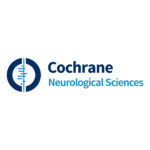
Don’t recommend enteral nutrition (PEG, percutaneous endoscopic gastrostomy or naso-gastric feeding tube) in patients with advanced dementia; instead offer oral assisted feeding.
Enteral nutrition is aimed at maintaining or improving patient quality of life and functionality, and prolonging survival. In patients with severe dementia, functional decline and comorbidities may suggest poor long-term benefits from enteral nutrition. Furthermore, in the decision-making process, the risks of feeding tube insertion and maintenance should be lower than the expected benefits.
Clinical studies have shown that, during the final stage of dementia, PEG and naso-gastric tube are associated with pressure ulcers, increased use of physical and chemical restraints for agitation, patient discomfort, possible fluid overload, diarrhea, pain and local complications, low socialization time and possible increase of aspiration pneumonia. In patients with severe dementia, careful hand feeding should be preferred in order to guarantee patient well-being and social interactions, rather than nutritional intake (comfort feeding).
Sources
1. Arvanitakis M, Gkolfakis P, Despott EJ, Ballarin A, Beyna T, Boeykens K, Elbe P, Gisbertz I, Hoyois A, Mosteanu O, Sanders DS, Schmidt PT, Schneider SM, van Hooft JE. Endoscopic management of enteral tubes in adult patients - Part 1: Definitions and indications. European Society of Gastrointestinal Endoscopy (ESGE) Guideline. Endoscopy. 2021 Jan;53(1):81-92. doi: 10.1055/a-1303-7449.
2. Volkert D, Beck AM, Cederholm T, Cruz-Jentoft A, Goisser S, Hooper L, Kiesswetter E, Maggio M, Raynaud-Simon A, Sieber CC, Sobotka L, van Asselt D, Wirth R, Bischoff SC. ESPEN guideline on clinical nutrition and hydration in geriatrics. Clin Nutr. 2019 Feb;38(1):10-47. doi: 10.1016/j.clnu.2018.05.024.
3. Ayman AR, Khoury T, Cohen J, Chen S, Yaari S, Daher S, Benson AA, Mizrahi M. PEG Insertion in Patients With Dementia Does Not Improve Nutritional Status and Has Worse Outcomes as Compared With PEG Insertion for Other Indications. J Clin Gastroenterol. May/Jun 2017;51(5):417-420.
4. Volkert D, Chourdakis M, Faxen-Irving G, Frühwald T, Landi F, Suominen MH, Vandewoude M, Wirth R, Schneider SM. ESPEN guidelines on nutrition in dementia. Clin Nutr. 2015 Dec;34(6):1052-73. doi: 10.1016/j.clnu.2015.09.004.
5. American Geriatrics Society Ethics Committee and Clinical Practice and Models of Care Committee. American Geriatrics Society feeding tubes in advanced dementia position statement. J Am Geriatr Soc. 2014 Aug;62(8):1590-3. doi: 10.1111/jgs.12924
Download
PDFAttention. Please note that these items are provided only for information and are not intended as a substitute for consultation with a clinician. Patients with any specific questions about the items on this list or their individual situation should consult their clinician.


Recent Comments